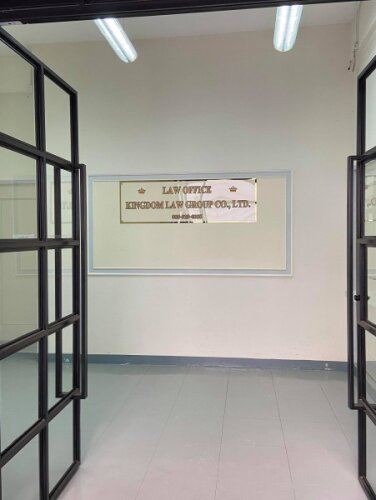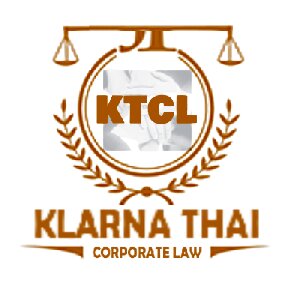Best Project Finance Lawyers in Watthana
Share your needs with us, get contacted by law firms.
Free. Takes 2 min.
List of the best lawyers in Watthana, Thailand
About Project Finance Law in Watthana, Thailand
Project finance is a specialized area of law and finance that involves the funding of long term infrastructure and industrial projects based on projected cash flows of the project rather than the balance sheets of project sponsors. In Watthana, a bustling district in Bangkok, Thailand, project finance commonly supports sectors such as energy, transportation, telecommunications, property development, and public utilities. Carefully structured arrangements involving multiple parties, including private companies, financiers, and public authorities, are integral to ensuring the success of these large scale projects. Understanding the legal framework is essential for protecting investments and ensuring compliance throughout the project life cycle.
Why You May Need a Lawyer
Project finance transactions are complex and involve a multitude of stakeholders, regulatory requirements, and contractual obligations. You may require legal help in the following situations:
- Drafting and negotiating loan agreements, security documents, and shareholder agreements.
- Ensuring compliance with local, national, and sector specific regulations in Thailand.
- Conducting due diligence on projects, sponsors, and potential risks.
- Structuring financial arrangements to optimize tax efficiency and risk allocation.
- Securing permits, licenses, and required approvals from government authorities.
- Resolving disputes among sponsors, lenders, or contractors.
- Managing issues related to land acquisition and environmental impact.
- Advising on foreign investment laws and cross border transactions.
Legal guidance is invaluable for mitigating risks, navigating regulatory hurdles, and ensuring that complex transactions are properly executed in accordance with Thai law.
Local Laws Overview
Watthana is subject to Thai national laws, and there are several key legal frameworks relevant to project finance transactions:
- Public Private Partnership (PPP) Act: This governs collaboration between public sector entities and private companies for infrastructure projects. It outlines procedures for project approval, contract execution, and dispute resolution.
- Foreign Business Act: This restricts certain business activities by foreign owned entities unless exemptions or licenses are obtained, impacting foreign investors in project finance.
- Land Code and Ownership Law: Regulations regarding land acquisition, ownership limitations, and land use are crucial for project location and development.
- Securities and Exchange Act: If projects involve capital market financing, securities regulations may apply, overseen by the Securities and Exchange Commission.
- Environmental Laws: Projects must comply with Environmental Impact Assessment (EIA) requirements, especially in energy, property development, or heavy industry.
- Contract Law: General contract principles, as set out in the Civil and Commercial Code, will dictate the rights and obligations of all parties involved in project finance.
Frequently Asked Questions
What is project finance and how does it differ from traditional corporate finance?
Project finance is a method of funding where lenders rely mainly on the future cash flows generated by a specific project for repayment, rather than the entire balance sheet of the project sponsors. This is different from corporate finance, which assesses the overall financial health of a company.
Are foreign investors allowed to participate in project finance in Watthana, Thailand?
Yes, but there are restrictions under the Foreign Business Act. In certain sectors, foreign participation requires government approval or the use of joint ventures with Thai nationals.
What are common forms of security used in project finance transactions?
Typical securities include mortgages over land or buildings, pledges of shares, assignment of project rights, and security over project accounts.
Is government approval always required for project finance transactions?
Not always, but many large infrastructure projects, especially those involving public assets or PPPs, do require approvals from applicable government agencies.
What are the main risks associated with project finance in Thailand?
Risks include political changes, regulatory uncertainty, environmental compliance, land acquisition difficulties, and construction or operational issues.
How can I ensure compliance with environmental laws in a project finance arrangement?
Compliance typically requires conducting Environmental Impact Assessments and obtaining approval from relevant agencies before commencing development.
What is the process for resolving disputes in a project finance agreement?
Disputes may be resolved through negotiation, mediation, arbitration, or litigation, depending on the dispute resolution clause in the agreements.
Can project finance be used for renewable energy projects in Thailand?
Yes, project finance is commonly used to develop renewable energy projects, with additional regulations and incentives potentially applicable to such initiatives.
Who are the common participants in a project finance transaction?
Participants usually include sponsors (project owners), lenders (banks or financial institutions), contractors, government authorities, and sometimes offtakers (buyers of the product or service).
What happens if a project fails to achieve its projected cash flows?
If projected cash flows fall short, lenders may enforce security rights or take over project assets. The structure often limits the liability of sponsors to their investment in the project.
Additional Resources
If you need more information about project finance in Watthana, Thailand, you can consult these helpful organizations and governmental bodies:
- The Board of Investment of Thailand (BOI) - guidance for foreign investment and incentives
- Office of Public Private Partnership Promotion (PPP Office) under the Ministry of Finance
- Securities and Exchange Commission Thailand (SEC) - for securities market related matters
- Provincial Administration Offices and Land Department for land and permit issues
- Department of Business Development (DBD) - company registration and due diligence
- Environmental Impact Assessment Bureau within the Ministry of Natural Resources and Environment
- Ubon Ratchathani Lawyers Council for local legal referrals
Next Steps
If you are considering a project finance transaction in Watthana, Thailand or have encountered a legal issue, consider these steps:
- Identify the nature and scope of your project, including all involved parties and jurisdictions.
- Gather all relevant documentation related to your project, such as contracts, permits, and correspondence.
- Contact a qualified lawyer or law firm in Watthana or Bangkok with experience in project finance and local regulations.
- Discuss your objectives, concerns, and any questions you may have about the process.
- Work with your legal counsel to develop a strategy for compliance, risk mitigation, and successful project structuring.
- Understand your legal obligations and rights under Thai law before making any commitments or investments.
Early legal advice can help prevent costly mistakes, safeguard your investment, and position your project for long term success in Watthana, Thailand.
Lawzana helps you find the best lawyers and law firms in Watthana through a curated and pre-screened list of qualified legal professionals. Our platform offers rankings and detailed profiles of attorneys and law firms, allowing you to compare based on practice areas, including Project Finance, experience, and client feedback.
Each profile includes a description of the firm's areas of practice, client reviews, team members and partners, year of establishment, spoken languages, office locations, contact information, social media presence, and any published articles or resources. Most firms on our platform speak English and are experienced in both local and international legal matters.
Get a quote from top-rated law firms in Watthana, Thailand — quickly, securely, and without unnecessary hassle.
Disclaimer:
The information provided on this page is for general informational purposes only and does not constitute legal advice. While we strive to ensure the accuracy and relevance of the content, legal information may change over time, and interpretations of the law can vary. You should always consult with a qualified legal professional for advice specific to your situation.
We disclaim all liability for actions taken or not taken based on the content of this page. If you believe any information is incorrect or outdated, please contact us, and we will review and update it where appropriate.
















